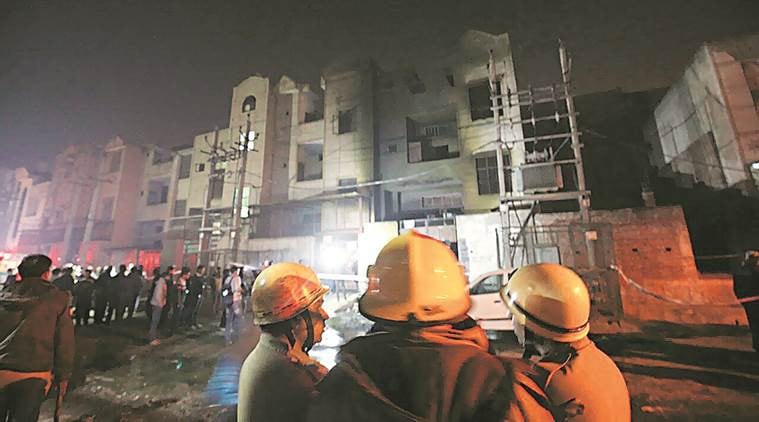 17 people had died in the blaze.
17 people had died in the blaze.
A Delhi court Friday granted bail to Ashish Jain in connection with the Bawana fire tragedy which led to the death of 17 people. On January 20, the fire had broken out in a factory on the ground floor of a building in Bawana.
Ashish, the son of the factory owner Manoj Jain and the seventh accused in the case, was arrested last week after victims’ families moved the High Court. However, the court said bail was granted to Ashish on “parity grounds”, and that it had not gone into the merits of the case.
Roop Prakash, an eyewitness in the case, had said in his statement to the magistrate that Ashish provided the labourers with snacks, and then locked the gate from outside. The counsel for the accused argued that Ashish was arrested after the chargesheet was filed on “false and frivolous grounds”. The Additional Public Prosecutor, however, objected and said that since the factory was locked, the workers could not escape.
The counsel for the accused argued that Prakash’s statement could not be relied upon as the report submitted by the fire brigade stated that they entered the premises from a small gate and then opened the bigger gate after removing bolts from “inside”.
Link Metropolitan Magistrate observed: “IO admits there is nothing on record to establish the factory was locked from outside and admits report of fire brigade, which shows they entered the factory by opening the small gate and thereafter they opened the bigger gate from inside”.
Granting bail to Ashish, the court said that while six people were named as accused in the chargesheet, four, who are not owners of the factory, have already been given bail. “Under these circumstances, when accused is not the owner nor responsible for the conduct of the factory, parity of the accused lies with those persons who have been granted bail,” the court said.